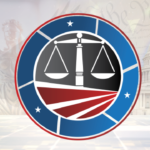
2020 LAW DAY AWARDS AND ANNOUNCMENTS
The Law Day 2020 theme: “Your Vote, Your Voice, Our Democracy: The 19th Amendment at 100.” In 2019-2020, the United States is commemorating the centennial of the transformative constitutional amendment that guaranteed the right of citizens to vote would not be denied or abridged by the United States or any state on account of sex. American women fought for, and won, the vote through their voice and action.
PLEASE JOIN US IN CONGRATULATING THIS YEAR’S WINNERS OF THE DOUGLAS/ELBERT BAR ASSOCIATION’S LAW DAY AWARDS!
Outstanding Young Lawyer
Hannah Paille, Kokish and Goldmanis, P.C.
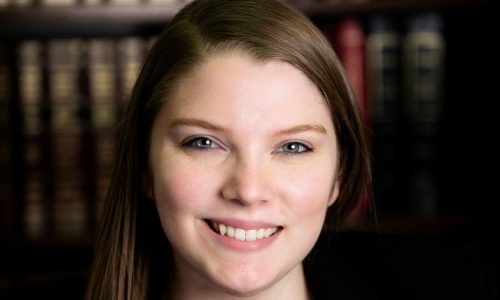
Hannah Paille joined the firm of Kokish & Goldmanis approximately 18 months ago. Although she had only been licensed for a short time, Hannah’s professionalism was immediately impressive. Hannah is eager to learn and passionate about the law. Her knowledge is well beyond her years of experience and she has taken on challenging cases without backing down. However, as impressive as Hannah’s entry into the family law field has been, her passion and dedication to the Mock Trial program at Douglas County High School was unmatched.
Hannah learned that the Mock Trial program needed an attorney coach and she immediately jumped in and committed herself to the children and the team. The team suffered some difficult personal challenges throughout the year but Hannah helped them push through. She continued to spend hours upon hours each week with the kids, traveling to participate in practice rounds and competitions to get the teams ready for the tournament. After months of dedication, Hannah’s work paid off when Douglas County, who had not previously sent a Mock Trial team to state, qualified two of its teams for the state tournament. Hannah exemplifies the professionalism, love of the law, and dedication to the community that we look for in attorneys. To see all of these qualities in a young attorney is unusual and is the reason we believe Hannah deserves this year’s outstanding young lawyer award.
Outstanding Court Judicial Assistant
Ashley Tucker, Douglas County
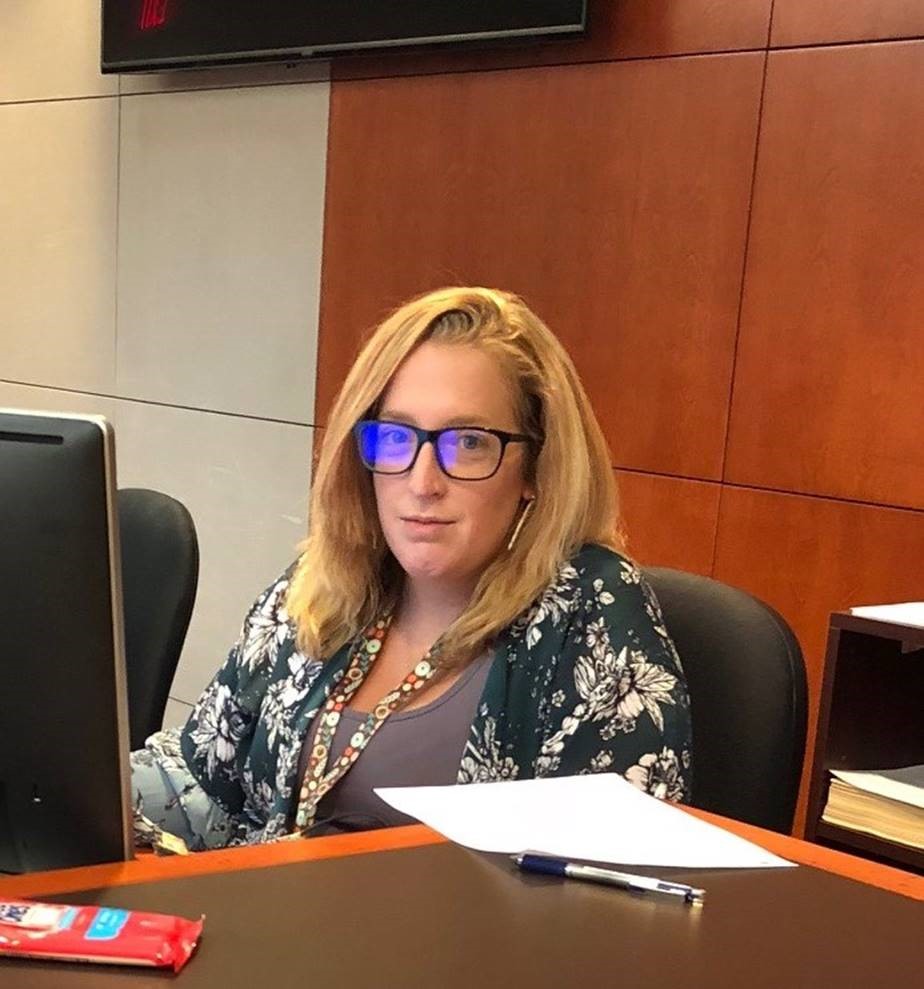
Ashley Tucker is a clerk for the Honorable Judge Patricia D. Herron in Division 4 of the Douglas County District Court. Ashley was nominated for Outstanding Court Judicial Assistant because of her exceptional skills as a clerk. Ashley is a great writer and communicator, and attorneys enjoy working with her. Ashley is organized, and her communications are polite, professional, clear, and concise.
Judge Herron provided the following to describe her super-star clerk:
“Ashley Tucker is a dynamic person who is always motivated to do her best. She makes her job look easy even under pressure! She is lightning fast on the computer with technical skills few possess. As many of you know she is highly skilled in all things juvenile, domestic relations and criminal. Ashley has a brilliant mind allowing her to quickly learn new things and adapt to changes easily. She does her own job seamlessly and she is often called upon to mentor others. If you are visualizing her in a red cape with super powers, you are not wrong!”
Outstanding Volunteer
Megan A. Combs, Combs & Recht LLC
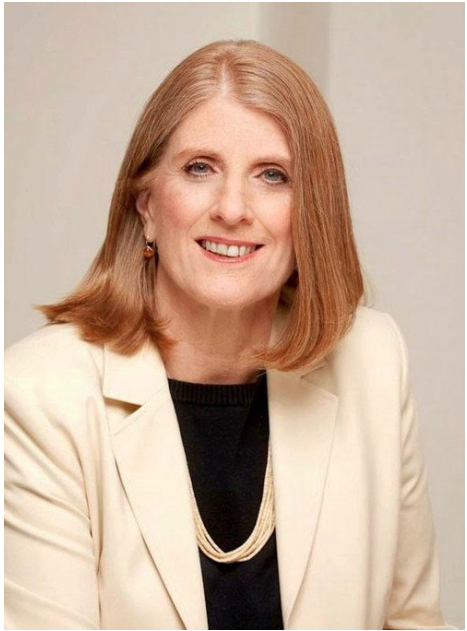
This year’s recipient of the DEBA Volunteer Award is Megan A. Combs. Megan graduated from Lewis and Clark Law School and initially worked at Montana Legal Services working with domestic violence and tribal jurisdiction and child custody matters. During her legal career in Colorado she has volunteered countless hours to helping pro se litigants navigate the daunting maze of domestic relations litigation through the Douglas County Pro Se Clinics and Metro Volunteer Lawyers. She has also volunteered her time and energies to help with the Mock Trial Tournament.
DEBA Treasurer Election Results
Andrew Birkeland, Kokish and Goldmanis, P.C.

DEBA is excited to welcome Andrew Birkeland to the board as Treasurer for 2020-2021. Andrew focuses his practice on family law and civil litigation. In addition to DEBA, Andrew is a member of the Colorado Bar Association and recently served on the CBA Nominating Committee. Andrew served as Treasurer of the Colorado LGBT Bar Association and is a part of Leadership Douglas County. Andrew lives on a farm near Elizabeth with his husband, four horses, two dogs, eleven chickens and a cat.
A native of North Dakota, Andrew earned his undergraduate degree from the University of Mary in Bismarck, North Dakota and his law degree from William Mitchell College of Law in St. Paul, Minnesota.
DEBA Law Day Essay Scholarship
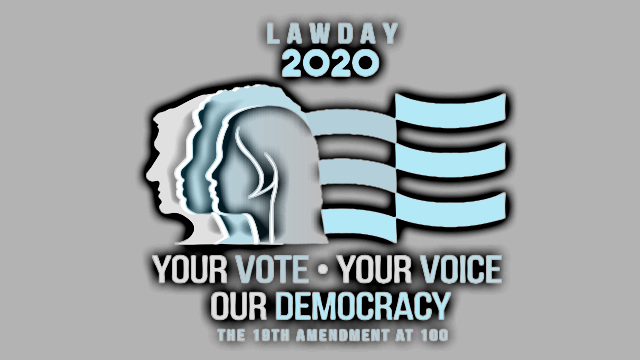
The 2020 Law Day Essay Scholarship contest posed the following question: Should the voting age be lowered to 16? Why or why not? In addition to the essay submission, candidates were reviewed on their academic record and their community involvement. The DEBA board received several submissions for the Essay Scholarship this year and the final decision was a difficult one with many qualified applicants and persuasive essays.
DEBA is pleased to announce the winner of this year’s Law Day Essay Scholarship, Audrey Dizdar from Castle View High School. Audrey is a junior at Caste View and in addition to excelling in her academics, Audrey has dedicated hundreds of hours of volunteer work in her community. For her outstanding community involvement, academic excellence and winning essay, the DEBA board is proud to award the Law Day Scholarship to Ms. Audrey Dizdar. Ms. Dizdar will receive a $5,000 scholarship to be paid to the college education institution of her choice. Please see Ms. Dizdar’s winning essay below.
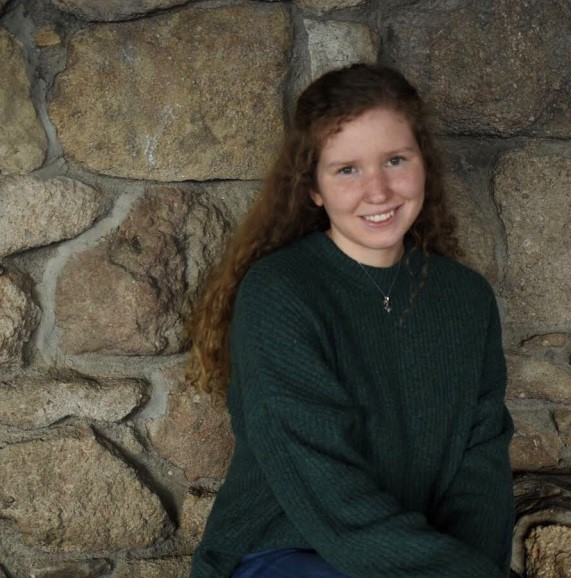
~~~~~~~~~~~~~~~~~~~~~~~~~~~~~~~~~~~~~~~~~~~~~~~~~~~~~~~~~~~~~~~
Audrey Dizdar
Castle View High School 2020 Law Day Essay Entry 15 April 2020
Why the Voting Age Should be Lowered to Sixteen
Much is asked of sixteen year-old American citizens in the twenty-first century. This is a generation of students who have grown up with school shootings, terrorism all over the world, faced recessions, and a worldwide pandemic. Not to mention, many sixteen year-olds in 2020 are more adult than teenagers of the past. They face adult problems and should be allowed to participate in their choice of leadership, in the same way that they are compelled to participate in other aspects of society.
Gun control, student debt, climate change, abortion rights, and the economy are at the forefront of many presidential campaigns from all political stances, directly effecting today’s teenagers. It’s important to remember that today’s sixteen year-olds will be entering college and the workforce if not now, then in the very near future, and major changes to any of the mentioned categories directly affects teenagers in a very immediate way. If they work they pay taxes, are asked to choose a political party affiliation when getting their licenses, are eligible to register to vote, but after it all, are ultimately not sent local, state, or national ballots.
The opposition to lowering the voting age is loud and clear, however, and mainly focuses on the fact that at the very core of the issue, sixteen year-olds are children, who are uninformed, easily influenced by outside factors, and simply not mature enough to cast an informed vote.
However, according to an Annenberg Public Policy Center survey done in 2017, only twenty-six percent of adults can name all three branches of the government. So, the argument that teenagers, who are actively receiving an education with a required government course, are not well enough informed to make a vote is quite simply, incorrect. If we are basing voting ability on the knowledge of government functions, sixteen year-olds are equally, if not more, informed than many adults. Although, it may be generalized that sixteen year-olds are easily influenced, and lack adequate life experience to help them make an informed vote. It can be argued, however, that there is a wide spectrum of life experience, activism, and willingness to participate at any age. At sixteen, just as at eighteen, twenty, or forty, someone could be entering the workforce for the first time. They could be a parent. They could be working full-time, or not at all. They could be living with their parents, significant other, or by themselves. At sixteen years old, you are expected to act as an adult would, but not allowed a vote in how your future is handled.
A sense of social responsibility knows no age limit, and to expect sixteen year-olds to be participants in an economy that they can’t influence, go to college on a system they didn’t get to dictate, and expect them to bring about change to a system that they can’t vote in is wildly unjust.
Works Cited
“Americans Are Poorly Informed About Basic Constitutional Provisions.” The Annenberg Public
Policy Center of the University of Pennsylvania, 21 Jan. 2020,
www.annenbergpublicpolicycenter.org/americans-are-poorly-informed-about-basic-constitutional-provisions/. Accessed 26 March 2020.

